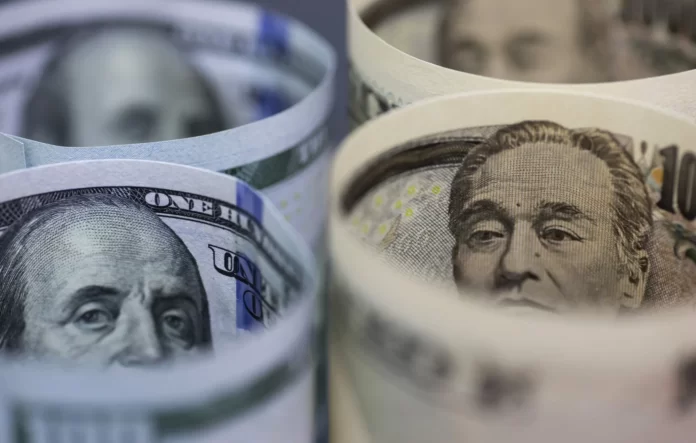The U.S. dollar traded mixed on Friday but remained on course for a monthly gain against the Japanese yen as investors weighed the ongoing uncertainty surrounding trade tariffs.
Despite legal challenges, many expect tariffs to stay in place in some form, reinforcing concerns about their potential impact on economic growth and inflation.
A federal appeals court temporarily reinstated sweeping tariffs imposed by former President Donald Trump, reversing a lower court ruling that had blocked them on the grounds that Trump had overstepped his authority. The decision has left markets anticipating that some form of trade levies will persist, even as legal proceedings continue.
The dollar briefly strengthened after Trump accused China of violating a tariff agreement with the United States. This followed remarks from Treasury Secretary Scott Bessent, who indicated that trade negotiations between the U.S. and China had stalled.
White House officials have stated that alternative methods will be pursued to maintain tariffs if the courts ultimately strike down the administration’s approach.
Markets have grown cautious, as tariffs are seen not only as a tool for trade negotiation but also as a potential revenue source amid discussions in Congress to cut income taxes. Investors are watching for signs that prolonged tariff measures could weigh on consumer demand and price stability.
Economic data released Friday showed that U.S. consumer spending rose marginally in April, with inflation also easing. The subdued spending growth was attributed to a rush of purchases in anticipation of higher import prices.
A separate report indicated a sharp narrowing of the U.S. goods trade deficit, as the effect of early imports ahead of tariffs began to fade.
Despite the data, markets remained stable, with little movement in response. Attention is now turning to the upcoming jobs report for May, scheduled for release next Friday, which may offer insight into the strength of the labour market following an unexpected increase in jobless claims reported earlier in the week.
In foreign exchange markets, the euro declined 0.47 percent to $1.1317, putting it on track for its first monthly loss since December. German inflation data showed a continued slowdown in May, bringing it closer to the European Central Bank’s target and strengthening the likelihood of a rate cut in the coming week.
The dollar dipped 0.14 percent to 143.99 yen but remained up 0.7 percent for the month, marking its strongest monthly performance against the Japanese currency since December. In Japan, core inflation in Tokyo rose to its highest level in more than two years, driven by persistent food price increases, increasing pressure on the Bank of Japan to consider further interest rate hikes.




